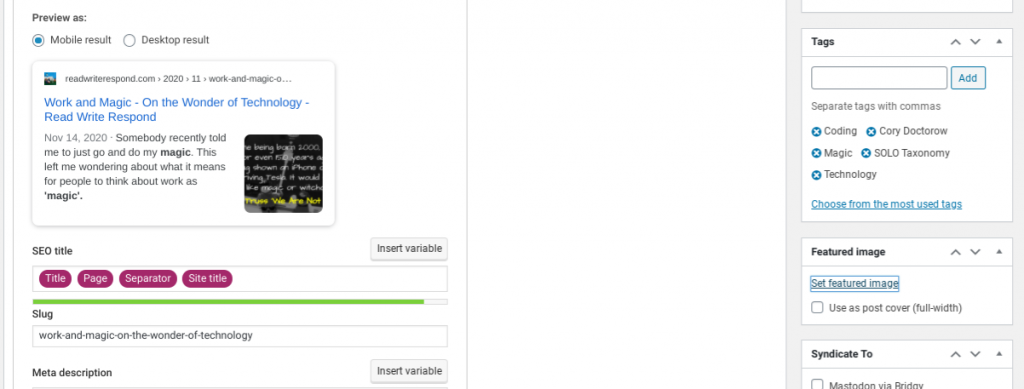I recently moved another blog of mine back to “plain” WordPress, and in the process added microformats2 support to its Twenty Twenty child theme. Some remarks: I’ve yet to add a
u-photoclass to featured images, I used a bit of a trick to get post metadata to show below short-form posts rather than above, and I’ve also completely hidden the “regular” comment form—I’m more of a Webmention type of guy.All of the site’s source, minus default plugins and such, is hosted on GitHub, and that includes this child theme.
Tag: WordPress Themes

I am assuming that this somehow relates to the theme as I tested out two other themes and they worked fine. I also updated to the latest version of Autonomie and am running WordPress 5.5.3
I was also intrigued by Jim Groom’s piece on managing your cloudlets by turning applications off when you are not using them on Reclaim Cloud. Although Groom’s focus was on cost, I think this too has a sustainable focus as well.
The
page-now.phptemplate for the / now page is automatically drawn via the file name and no further work is actually necessary, but if the page should be accessible under a different slug (for whatever reason), you can also use the template for the/** Template Name: "/now" Template */header for make any page available.Another alternative would be
post_classto expand, but a dedicated template simply offers more options. A nice example is Dominik Schwinds https://lostfocus.de/now/ , which he updates via the category “nownownow”.
I really like your idea about a plugin and would definitely be up for that. It reminds me of what Alan LevineAlan Levine has done with the Splots Writer plugin. This is also how EdublogsEdublogs have built wikis their version of WordPress.
